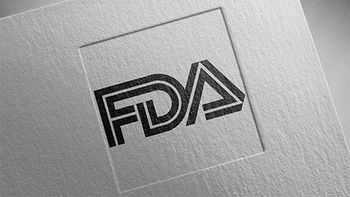
- Pharmaceutical Commerce - September/October 2011
Business-to-business publisher offers online contact to physicians that have diagnostics services
Online medical-diagnostics catalogues will have links to live pharma rep interations
While there are a growing number of e-detailing services that enable physicians to interact directly with sales reps, traditional publishers are building out their online capabilities to do the same. A case in point is Physicians Office Resource (POR; Bedford, NH), which has published a variety of directories for medical diagnostic equipment that might be purchased by physicians.
Over the past few months, according to Andy Nimmo, president, the company has been upgrading its online capabilities to enable direct interaction with customer service reps at equipment vendors—no surprise there. But now it hopes to capitalize on the fact that physicians who might be looking at an in-office device would naturally be looking at the medications that such tests would be indicators for. Preliminary trials have been very encouraging, says Nimmo, because “the physicians are coming to you, essentially prequalified, rather than being pulled by a request from an e-mail, phone call, or visit.” For example, if a physician is running an in-office test for stomach ulcers, (for which there are antibody tests), that physician might also be interested in reading about the drug treatments available for ulcers.
Behind all this has been a quiet transformation of the marketplace for in-office testing. According to Nimmo, after doctors went aggressively after in-office business years ago, HHS clamped down with its CLIA program to certify labs. The number of certified labs went from over 300,000 to around 35,000 in the early years of this century—but has since risen to 110,000, including many physicians’ offices. Now, POR has contracted with two well-known names in pharma marketing: SK&A, a unit of Cegedim, and First DataBank, a unit of Hearst Business Media, to connect the right physicians with the right medical information. The former provides updated contact information about doctors’ offices; the latter provides approved descriptions of over 80,000 medications available commercially.
Nimmo says that the pharmaceutical program will allow manufacturers to go live with call-in or click-through resources from its website (which is free to physicians), for a startup fee of $25,000 and a graduated payment schedule that works out to about $100 per lead.
Articles in this issue
about 14 years ago
A Roadmap to Optimizing Marketing Operationsabout 14 years ago
Fix the Drug Shortage Problem- Nowabout 14 years ago
HDMA distributor sales are up 4.6%, to $274.5 billion through 2010over 14 years ago
UPS Healthcare Logistics announces new cold chain optionover 14 years ago
Contract Packagers, 3PLs Vie for Pharma 'Kitting' Servicesover 14 years ago
2011 Product Security Report: Back to the Futureover 14 years ago
Drug shortages are opening the door to price gougingNewsletter
Stay ahead in the life sciences industry with Pharmaceutical Commerce, the latest news, trends, and strategies in drug distribution, commercialization, and market access.




